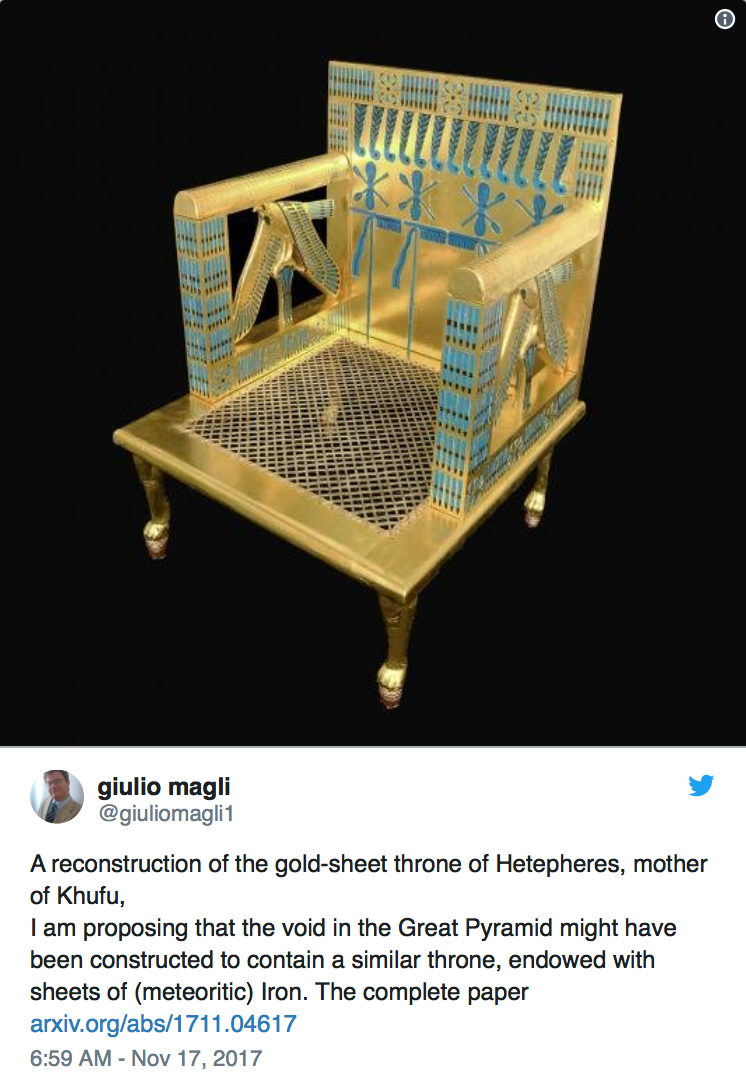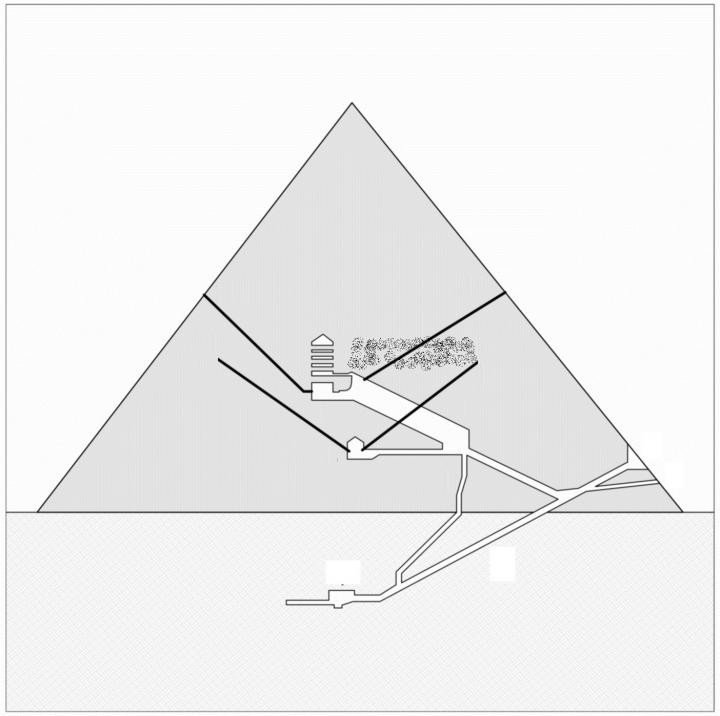A huge void discovered inside the Great Pyramid of Giza in Egypt late last year may hold an iron throne carved from meteorites, according to new analysis of ancient religious texts.

Giulio Magli, Director of the Department of Mathematics and Professor of Archaeoastronomy at the Politecnico di Milano, studied the Pyramid Texts, religious writings carved into pyramid walls around 2400 BC. Based on his studies, Magli proposes that it’s possible the throne of Pharaoh Khufu – or ‘Cheops’ – lies inside the chamber.
“Of course it would not be melted iron but meteoritic iron, that is, fallen from the sky in the form of iron meteorites and again cited in the Texts,” Magli says in his paper.
Explaining the structure of the pyramid, Magli states that before arriving at the funerary chamber there is a gallery. “The newly discovered room is over this gallery, but does not have a practical function of ‘relieving weight’ from it, because the roof of the gallery itself was already built with a corbelled technique for this very reason," he explains in a statement.
So what was this room used for? Magli offers a possible interpretation that falls in line with existing knowledge on Egyptian funerary religion as documented in the Pyramid texts: “In these texts it is said that the pharaoh,before reaching the stars of the north, will have to pass the ‘gates of the sky’ and sit on his ‘throne of iron.’”

Within the Pyramid there are four narrow shafts which Magli suggests represent said ‘gates of the sky’, adding: “The north one could well lead into the newly discovered room, and may contain an object needed by Cheops after crossing the doors – the ‘iron throne.’”
According to the textual analysis, Cheops’ throne may be similar to that of his mother, Queen Hetepheres, but instead of gold it would be coated with meteoritic iron sheets.
It is believed ancient Egypt attributed great value to meteoritic iron for the production of ornamental or ceremonial objects. In 2016 it was confirmed that King Tut’s dagger originated from a meteorite. Meteoric iron is clearly indicated by its high nickel content.
Magli admits that his proposal is still just a theory, but says it’s one worth further exploration, suggesting a fresh investigation of the pyramid’s north shaft to determine if it does indeed lead into the newly-discovered
chamber.
Interesting post. Thank you.
Hi! I am a robot. I just upvoted you! I found similar content that readers might be interested in:
https://www.rt.com/news/415823-giza-pyramid-meteorite-throne/